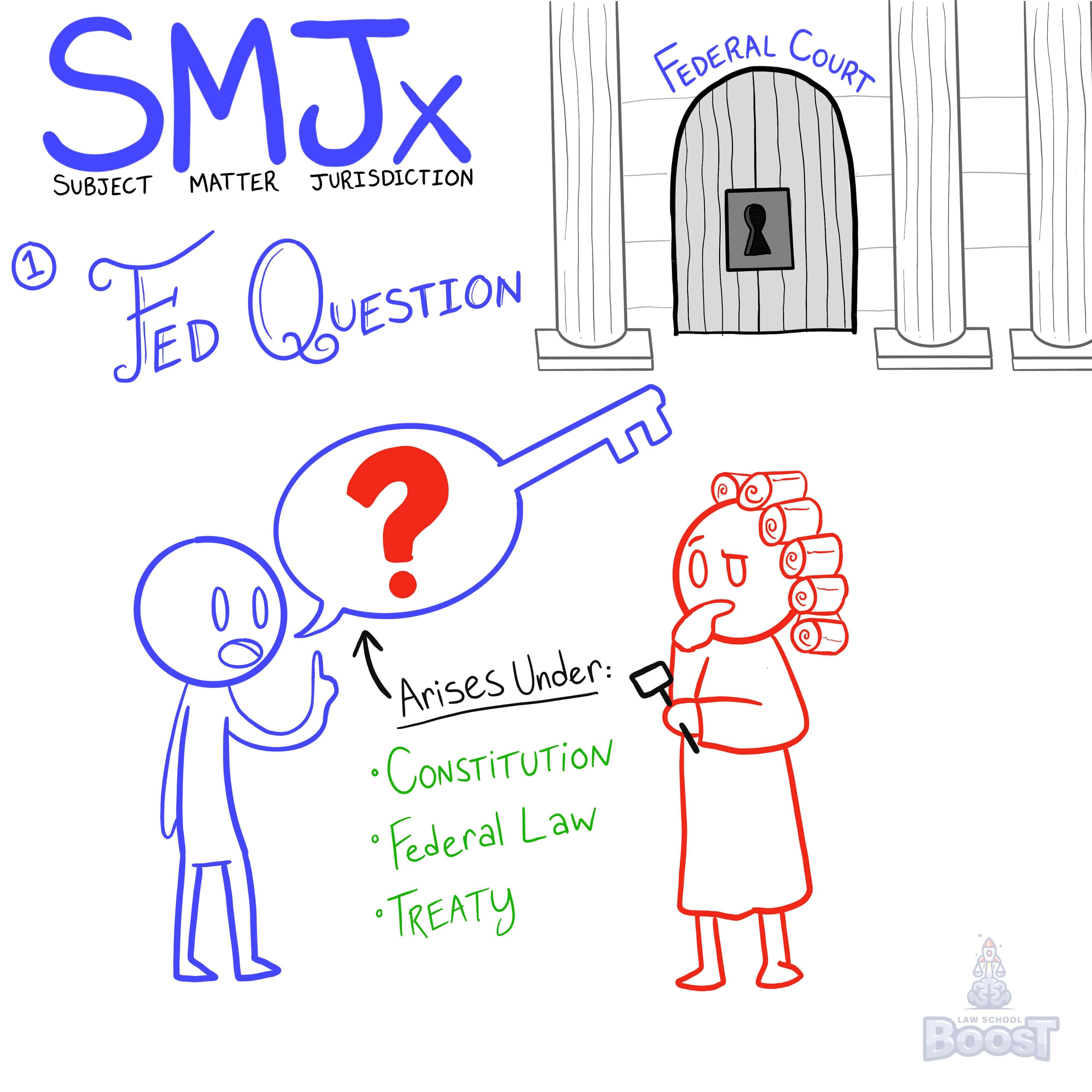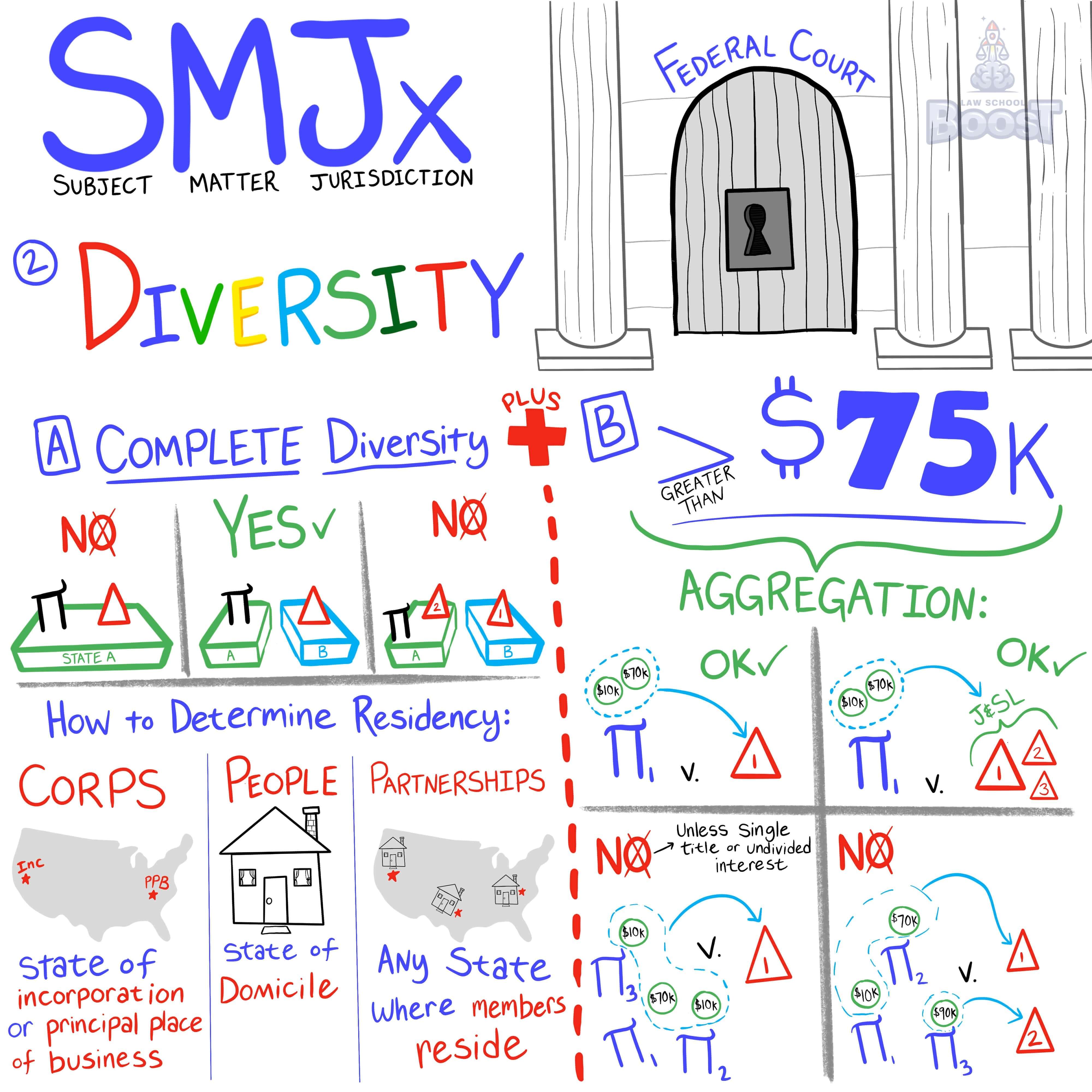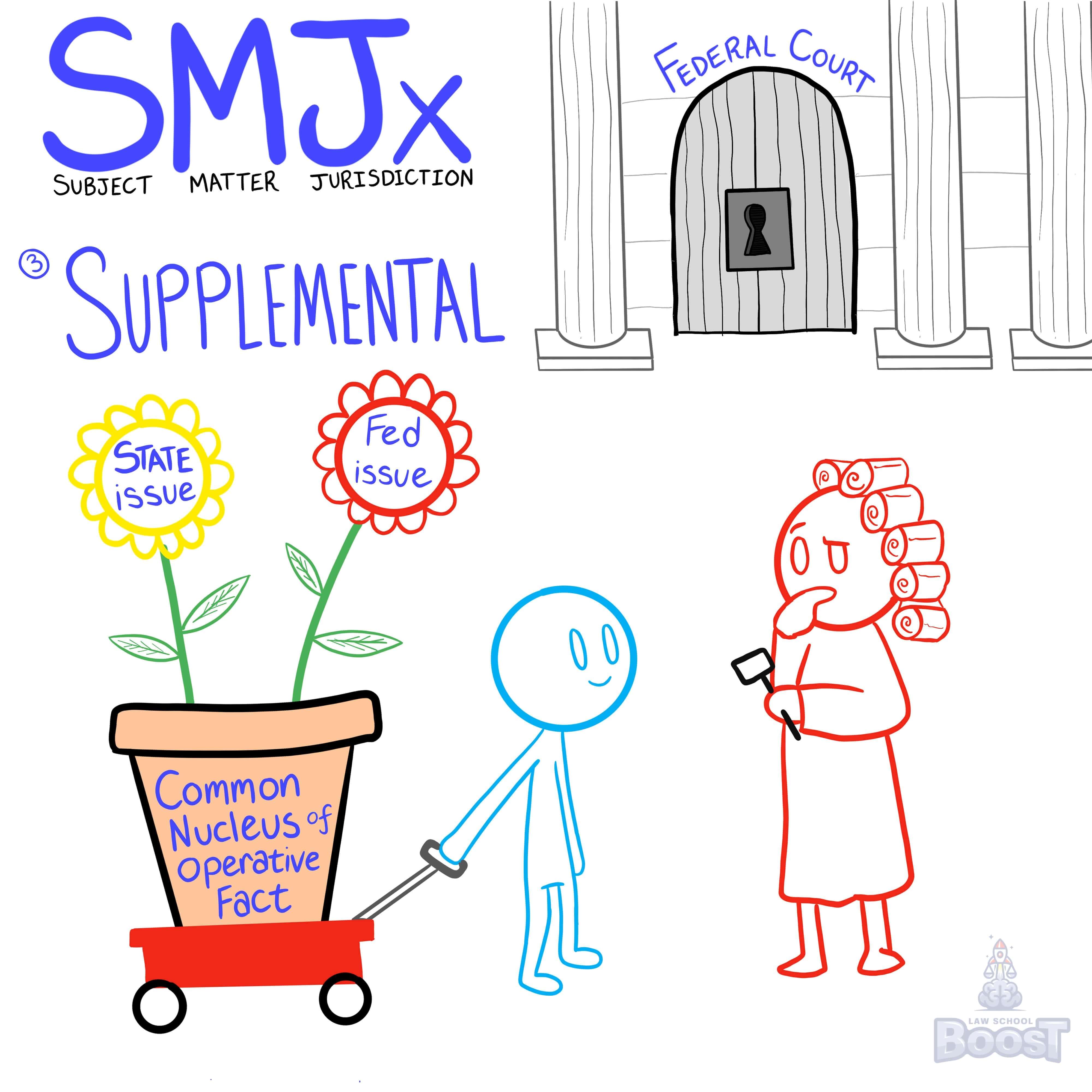🤤
Civil Procedure • Subject Matter Jurisdiction
CIVPRO#016
Legal Definition
A federal court can hear a state claim that arises out of the same transaction or occurrence as the federal claim, such that both claims share a common nucleus of operative fact and the plaintiff would ordinarily be expected to try them all in a single judicial proceeding.
Plain English Explanation
When it comes to Civil Procedure, most issues revolve around "Can I bring a claim into Federal court?" or "Is it appropriate for this claim to be heard in X specific court?" In fact, when you are issue spotting and sense a civil procedure issue, your first instinct should be to audit whether or not it is appropriate for the case to be heard in whatever court it is in (or trying to get into).
With that in mind, "supplemental jurisdiction" is a form of judicial efficiency, where a federal court allows a claim to be heard that would otherwise not be appropriate to be heard in federal court simply because it is substantially related.
With that in mind, "supplemental jurisdiction" is a form of judicial efficiency, where a federal court allows a claim to be heard that would otherwise not be appropriate to be heard in federal court simply because it is substantially related.
Hypothetical
Hypo 1: Bob lives in California. Sam lives in Texas. Sam claims that Bob infringed on his artwork and sues him for copyright infringement. Sam wants to join an additional claim against Bob for battery. Result: Copyright claims are a Federal Question, so Sam may sue Bob in federal court for this claim. However, the battery is completely independent and unrelated to the copyright infringement (it lacks a "common nucleus of operative fact"). Thus, supplemental jurisdiction is not allowed to bring in the battery claim; Sam must sue Bob for that in a state court.
Hypo 2: Bob and Amy live in California. Amy works for Bob. One day, Bob fires Amy because he doesn't want a female employee. Amy wants to sue Bob in federal court for employment discrimination, and wants to join a claim for state employment discrimination as a result of her being fired. Amy is seeking $80,000 in damages. Result: A federal court has subject matter jurisdiction over the federal discrimination claim under Federal Question, but not the state claim. However, because the state claim arises from the same issue and shares a "common nucleus of operative fact," it may be brought in under supplemental jurisdiction.
Hypo 2: Bob and Amy live in California. Amy works for Bob. One day, Bob fires Amy because he doesn't want a female employee. Amy wants to sue Bob in federal court for employment discrimination, and wants to join a claim for state employment discrimination as a result of her being fired. Amy is seeking $80,000 in damages. Result: A federal court has subject matter jurisdiction over the federal discrimination claim under Federal Question, but not the state claim. However, because the state claim arises from the same issue and shares a "common nucleus of operative fact," it may be brought in under supplemental jurisdiction.
Visual Aids



Related Concepts
How can subject matter jurisdiction be based on a federal question?
How can subject matter jurisdiction be based on diversity of citizenship?
How is citizenship determined under subject matter jurisdiction?
What is subject matter jurisdiction?
What is supplemental jurisdiction?
What types of cases will California courts exercise general subject matter jurisdiction over?
When is aggregation of damages under a diversity claim allowed and not allowed?


